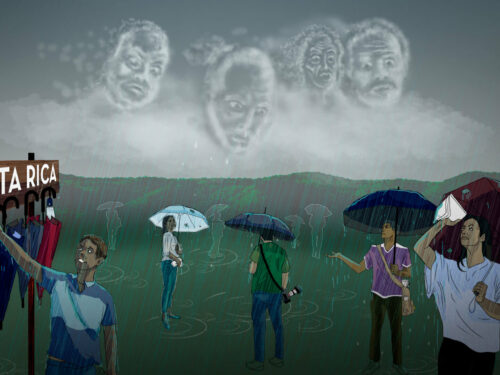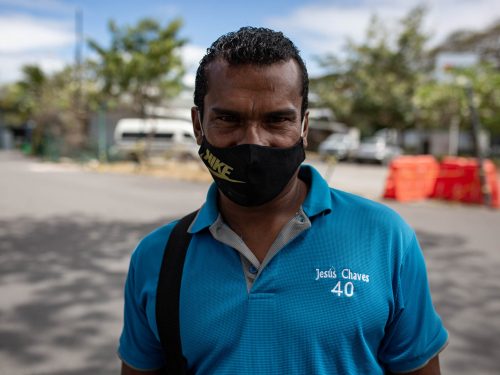
Costa Rica goes down in history today with a milestone that will guarantee the rights of gays, lesbians and transgenders in the future: Thanks to a request sent by the government, the Inter-American Court of Human Rights (CIDH) determined that this country must grant the same rights to same-sex couples that heterosexual couples have.
They also decided that people who want to change their identity (gender and name) on their ID will be able to do it without having to go through a costly judicial process.
“We are leaving the country more dignified than when we found it,” Vice President Ana Helena Chacon said in a press conference at the presidential palace on Tuesday, January 9.
The practical effects of both rulings are still in analysis, but the specialists who participated in the press conference assured that these rights will be implemented “progressively” and likely through rulings that must be issued by the Constitutional Court, which must comply with the CIDH’s decision.
These are some of the questions and answers that may be able to help you understand the document that the CIDH revealed today:
Which and how many rights does the document consolidate?
It protects all human rights of sexually diverse persons and those rights are the same that a heterosexual person enjoys, so there are a lot of them. The Vice President sent two requests to the court: one related to the rights of same-sex couples and another about transgender identities (for those born with one sex but whose gender and identity is different, or those who change sex).
Is Costa Rica required to comply with the court’s “consultative opinion” even though it’s not a judicial ruling?
Yes. In the words of Ombudswoman Montserrat Solano, Costa Rica is the only country that gives the same weight to a CIDH ruling as it does to a national court’s judicial decision. A ruling from the Constitutional Court resolved as such years ago. In other words, compliance with the content of the document is mandatory.
So, can same-sex couples get married now?
In practice, it’s not possible. Costa Rica’s Family Code Law impedes it. This law establishes an explicit prohibition of same-sex marriage. They also cannot be considered a civil union (unmarried). But, the document does state that all the patrimonial rights of these couples must be respected by the state, which includes all of Costa Rica’s institutions.
What must happen now for the state to guarantee all these rights?
It’s still too early to determine all the possible paths to follow that would guarantee all rights, but as of now all institutions must comply with the court’s order immediately. At least in theory. That’s to say, if you are a transgender person and you want to change your name, the Supreme Elections Court cannot impose any type of objection and must comply with the procedure like any other. The document also indicates that it must be confidential.
“As of today, at any place and before any public official you must claim your rights,” Solano insists. “A person in these circumstances that requires a name change must not be submitted to an onerous legal process. It must be free and secret in order to guarantee the right to change names and other registration aspects like gender “ said Marvin Carvajal, legal director for the president’s office.
None of this will have to go through Congress?
The possibilities that lawmakers will have to pass a law are many, given that they’ll have to modify articles to the Family Code Law. Nonetheless, Carvajal explained that they must carefully analyze what the best strategy is to comply with the Court’s ruling and at the soonest possible deadline. In some cases, a regulation or a decree will be enough.
What is certain is that the court’s conclusion is clear: “The state must recognize and guarantee all rights that derive from a family link among people of the same sex as established in articles 11.2 and 17.1 of the American Convention on Human Rights.”







Comments